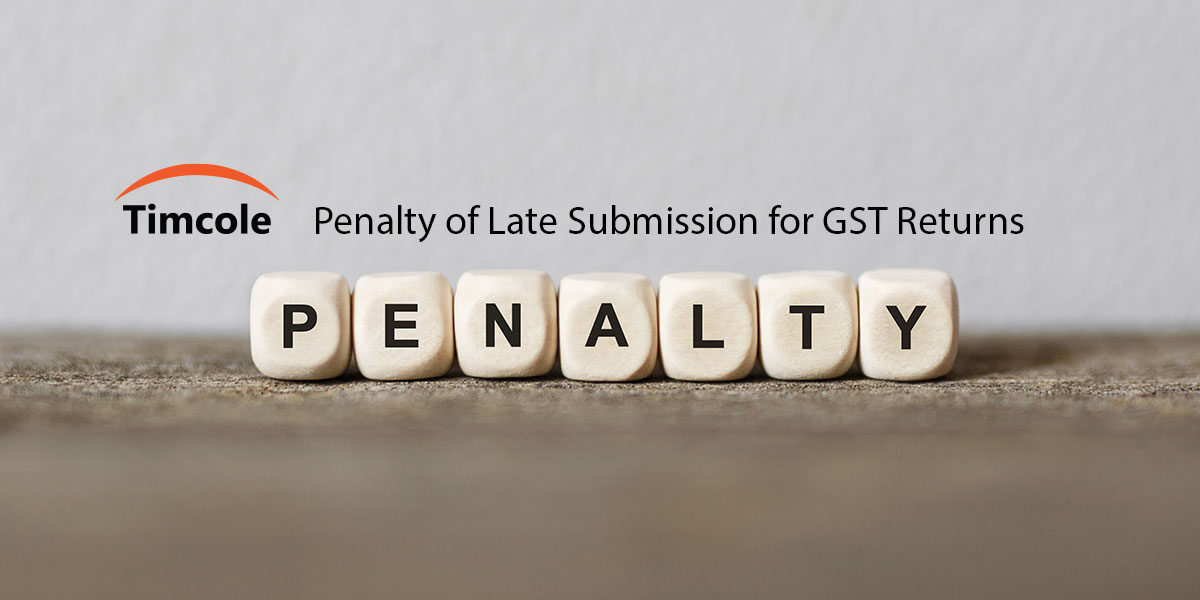Did you file your GST returns yet? If not, file your GST returns as soon as possible.
GST-registered Companies in Singapore
All GST-registered companies must file their GST returns. Otherwise, a strict penalty may be imposed on them.
In Singapore, GST-registered businesses are required to submit their GST returns and pay the due amount within one month after the end of the accounting period covered by the GST return. Companies with a GST registration that is NIL must also file GST returns even if they lack any business activities for the YA.
IRAS monitors and takes actions against companies that fail to file GST returns before the deadline or do not file tax returns at all.
![]()
Not sure if you are required to register for GST? Check the guides here:
- Should I register GST for my Sole-Proprietorship business in Singapore?
- Should I register GST for my Company in Singapore?
Types of Penalty Actions
When a company fails to comply and misses the deadline for filing business GST returns, IRAS may take the following actions:
- Issue an estimated Notice of Assessment (NOA) alongside a 5% late payment charge on the company’s estimated tax
- Charge a penalty fee for late submission
- Summon the person responsible for handling business activities to court
- Issue an arrest warrant
When a Notice of Assessment is received, businesses must urgently file their GST returns and declare their GST liability amount. Otherwise, the NOA cannot be revised. If sole proprietors or businesses fail to pay the late fee or file their GST returns online, they may be summoned to court.
Companies will still have to file all outstanding GST returns. In case they fail to do so, further prosecution actions will be taken against them. If they are unable to file timely GST returns, pay summons fees at least a week before the court date, or attend the court hearing, they may face even more serious consequences such as being issued with an arrest warrant.
Penalty Amount for Late GST Submission
Businesses that fail to file their GST returns before the due date must pay a $200 late submission fee. It is best to settle this amount promptly, as an additional $200 will be added for every additional month as the GST filing remains outstanding. The penalty can keep increasing until the maximum limit for outstanding return of $10,000 is reached.
![]() Avoid paying fines by planning your corporate tax properly. Check out these helpful guides:
Avoid paying fines by planning your corporate tax properly. Check out these helpful guides:
- Overview of Singapore taxation
- Effective tax planning for companies operating in Singapore
- Tax planning for companies in Singapore
Filing Outstanding Documents
Companies can simply use their IRAS pin or SingPass on the myTax Portal on the IRAS website to view any current or past GST accounting periods. The same online portal can also be used to file GST returns.
Trust Timcole with your GST filing.
Timcole has years of experience assisting SMEs with their backend accounting. From bookkeeping to GST filing services, our team of experienced accountants can have them all covered. Contact us to learn more.
 Do your own accounting the easy way.
Do your own accounting the easy way.
Xero is a cloud accounting software that can help you save both time and money. The platform is easy to use and even small business owners with little accounting experience can use it to do their own bookkeeping and filing.
Timcole is a Xero Platinum Partner and Certified Reseller of Xero Software. Also, as one of the few pre-approved IMDA Digital Solution Vendor for PSG funding, SMEs owners in Singapore can get 80% government subsidy when purchasing Xero accounting software through Timcole. Click here to learn more.








